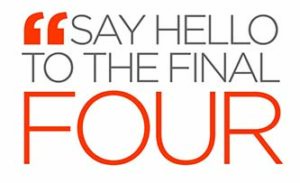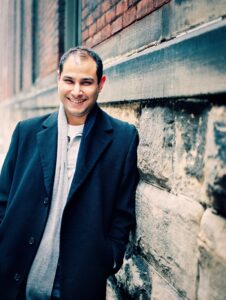

Following our March 8th unveiling of our Final Four Music Director Candidates, we embark on a four-week journey to acquaint ourselves with each candidate individually. All were posed with the same three questions. We hope you’ll enjoy reading their replies and gain a deeper insight into their personalities. Beginning this week, we shine the spotlight on Fawzi Haimor.
- What do you love most about conducting?
Being a conductor places me in the center of an incredible collaborative relationship. One aspect of a conductor’s job, and what I love most about the profession, is to function as a bridge between the orchestra and the audience. My role is to offer an initial interpretation of any given piece and not to dictate my sole vision. There are instances when I have been on the podium expecting to hear the music in a certain way, yet a musician in the orchestra will present a different idea. By remaining open-minded and listening to what the musicians in the orchestra have to offer allows us to merge all of our ideas together into one unique interpretation of the work, creating an experience that can’t be replicated anywhere else but for our audience that evening.
- What inspired you to pursue a career in conducting?
From a young age, I was always torn between the worlds of science and music. Initially, I was all set to travel down the typical pre-med route, studying exhaustively for the MCATs, applying for med schools, and anxiously awaiting interview invitations. Yet I found myself playing violin in orchestra, watching endless videos of famous conductors, and always setting aside books on organic chemistry to pick up any orchestral score I could get my hands on. Over time, I came to the simple realization that I was in love with music. I loved music so deeply that I had to find a way to share that love with others. As time went by, I became fascinated by how a collection of instruments, all sounding completely different, could magically come together to create a beautiful all-encompassing world. How could one person stand on a podium and, without making a sound, guide a group of incredibly talented musicians to produce a shared vision of a piece for an audience that is eagerly waiting to hear it? I became both obsessed and inspired and knew that conducting was all I wanted to do. As artists on stage, we are not making music simply to make music; if we do our job correctly, we have the opportunity to take a moment in time and have an impact on people’s lives. I had to be a part of it.
- Can you share a memorable or unexpected moment you’ve experienced while conducting?
Recently, I was conducting the New Zealand Symphony Orchestra in a program memorializing the city of Christchurch’s mosque attacks on March 15, 2019, and honestly, I had no idea what to expect. The entire country was recalling what is known as “one of New Zealand’s darkest days,” and I was asked to co-program and conduct a multi-city tour throughout the country. Rehearsals were underway, and all was well musically, but I was uncertain about how the public would receive these concerts. Throughout the week, though, members of the community of all backgrounds and religions embraced our effort as we stood in solidarity with the families who had lost loved ones. In turn, we performed to near sold-out concerts as the public came in droves, including a large number of audience members who had never seen or heard an orchestra before. Our concerts truly brought a nation together and gave them an opportunity to heal and find comfort. I’ve realized that as a conductor, we have the rare opportunity not only to make incredible music but also to make genuine, lasting relationships. Wherever I go to conduct, I meet people whom I’ll remain in contact with for the rest of my life, which is why I’m so grateful for what I do.
